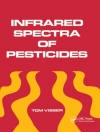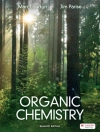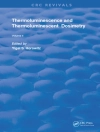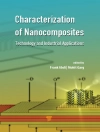The inspiration provided by biologically active natural products to conceive of hybrids, congeners, analogs and unnatural variants is discussed by experts in the field in 16 highly informative chapters.
Using well-documented studies over the past decade, this timely monograph demonstrates the current importance and future potential of natural products as starting points for the development of new drugs with improved properties over their progenitors.
The examples are chosen so as to represent a wide range of natural products with therapeutic relevance among others, as anticancer agents, antimicrobials, antifungals, antisense nucleosides, antidiabetics, and analgesics.
From the content:
* Part I: Natural Products as Sources of Potential Drugs and Systematic Compound Collections
* Part II: From Marketed Drugs to Designed Analogs and Clinical Candidates
* Part III: Natural Products as an Incentive for Enabling Technologies
* Part IV: Natural Products as Pharmacological Tools
* Part V: Nature: The Provider, the Enticer, and the Healer
Jadual kandungan
Preface
PART ONE: Natural Products as Sources of Potential Drugs and Systematic Compound Collections
NATURAL PRODUCTS AS DRUGS AND LEADS: AN INTRODUCTION AND PERSPECTIVE AS OF THE END OF 2012
Introduction
The Sponge-Derived Nucleoside Link to Drugs
Initial Recognition of Microbial Secondary Metabolites as Antibacterial Drugs
Beta-Lactams of All Classes
Tetracycline Derivatives
Glycopeptide Antibacterials
Lipopeptide Antibacterials
Macrolide Antibiotics
Pleuromutilin Derivatives
Privileged Structures
The Origin of the Benzodiazepines
Benzopyrans: A Source of Unusual Antibacterial and Other Agents
Multiple Enzymatic Inhibitors from Relatively Simple Natural Product Secondary Metabolites
A Variation on BIOS: The ‘Inside-Out’ Approach
Other Privileged Structures
Privileged Structures and Inhibitors of Protein-Protein Interactions
Underprivileged Scaffolds
So Where Should One Look in the Twenty-First Century for Novel Structures from Natural Sources?
Conclusions
NATURAL PRODUCT-DERIVED AND NATURAL PRODUCT-INSPIRED COMPOUND COLLECTIONS
Introduction
Modern Approaches to Produce Natural Product Libraries
Prefractionated Natural Product Libraries
Libraries of Pure Natural Products
Semisynthetic Libraries of Natural Product-Derived Compounds
Synthetic LIbraries of Natural Product-Inspired Compounds
Compound Collections with Carbocyclic Core Structures
Compound Cllections iwth Oxa-Heterocyclic Scaffolds
Compound Collections with Aza-Heterocyclic Scaffolds
Macrocyclic Compound Collections
Outlook
PART TWO: From Marketed Drugs to Designed Analogs and Clinical Candidates
CHEMISTRY AND BIOLOGY OF EPOTHILONES
Introduction: Discovery and Biological Activity
Synthesis of Natural Epothilones
Synthesis and Biological Activity of Nonnatural Epothilones
Conformational Studies and Pharmacophore Modeling
Conclusions
TAXOL, TAXOIDS, AND RELATED TAXANES
Introduction and Historical Background
Mechanism of Action and Drug Resistance
Structure-Activity Relationships (SAR) of Taxol
Structural and Chemical Biology of Taxol
New-Generation Taxoids from 10-DAB
Taxoids in Clinical Development
New Applications of Taxanes
Conclusions and Perspectives
CAMPTOTHECIN AND ANALOGS
Introduction
Biology Activity
Camptothecin in Clinical Use and Under Clinical Trials
Chemistry
Structure-Activity Relationship
Xenograft Studies
Prodrug/Targeting
Developments of Modern Chromatographic Methods Applied to CPT
Conclusions and Perspectives
A SHORT HISTORY OF THE DISCOVERY AND DEVELOPMENT OF NALTREXONE AND OTHER MORPHINE DERIVATIVES
Introduction
History and Development
Pharmacology
Structure-Activity Relationship of Morphine and its Analogs
Conclusions and Outlook
LINCOSAMIDE ANTIBACTERIALS
Introduction
Mechanism of Action
Antibacterial Spectrum
Resistance
Pseudomembraneous Colitis
Next-Generation Lincosamides
Conclusions
PLATENSIMYCIN AND PLATENCIN
Introduction and Historical Background
Discovery and Bioactivities of Platensimycin and Platencin
Total and Formal Syntheses of Platensimycin
Total and Formal Syntheses of Platencin
Analogs of Platensimycin and Platencin
Conclusions and Perspective
FROM NATURAL PRODUCT TO NEW DIABETES THERAPY: PHLORIZIN AND THE DISCOVERY OF SGLT2 INHIBITOR CLINICAL CANDIDATES
Introduction
Phlorizin: A Drug Lead from Apple Trees
Phlorizin: Mechanism of Action
Phlorizin, SGLTs, and Diabetes
Phlorizin Analogs: O-Glucosides
Phlorizin Analogs: C-Glucosides
C-Glucosides: Aglycone Modifications
C-Glucosides: Sugar Modifications
Conclusions
AERUGINOSINS AS THROMBIN INHIBITORS
Introduction
Targeting the Blood Coagulation Cascade
Structure of Thrombin
The Aeruginosin Family
Mimicking Nature
Conclusions
PART THREE: Natural Products as an Incentive for Enabling Technologies
MACROLIDES AND ANTIFUNGALS VIA BIOTRANSFORMATION
Introduction to Polyketides and Their Activity
Mechanism of Polyketide Biosynthesis
Conclusions
UNNATURAL NUCLEOSIDE ANALOGS FOR ANTISENSE THERAPY
Nature Uses Nucleid Acid Polymers for Storage, Transfer, Synthesis, and Regulation
Mengenai Pengarang
Stephen Hanessian holds the Isis Pharmaceuticals Research Chair at the University of Montreal and is also on the faculty of the Departments of Chemistry, Pharmaceutical Sciences and Pharmacology at the University of California, Irvine. He has received numerous awards and distinctions, the latest being the 2012 Ernest Guenther Award in the Chemistry of Natural Products from the American Chemical Society, the IUPAC-Richter Prize in Medicinal Chemistry, and the Montreal In Vivo Prize for innovation. Professor Hanessian has over 500 journal publications to his name, which span a wide cross-section of areas related to organic, bioorganic, and medicinal chemistry. His latest book ‘Design and Strategy in Organic Synthesis – From the Chiron Approach to Catalysis’ (Wiley-VCH) has received wide acclaim.












